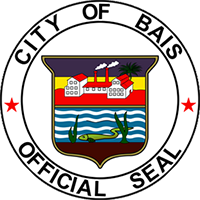


- CITIES
LCP Organizes Webinar on Inter-LGU Cooperation for Manila Bay
By LCP Secretariat
November 3, 2020 - Quezon City
Technical experts and local governments from the Manila Bay Region convened to discuss the role of local governments in the Manila Bay Sustainable Development Master Plan (MBSDMP) at a webinar organized by the League of Cities of the Philippines on 23 October 2020, with funding support from VNG International through its Governance of Inclusive Green Growth in Cities (DEALS) Programme.
The webinar entitled Promoting Interlocal Cooperation in the Manila Bay Master Plan provided a deeper understanding of how cities, provinces, and municipalities in the Manila Bay Region can work together in implementing the programs, activities, and projects (PAPs) outlined in the master plan with special focus on water governance and solid waste management.
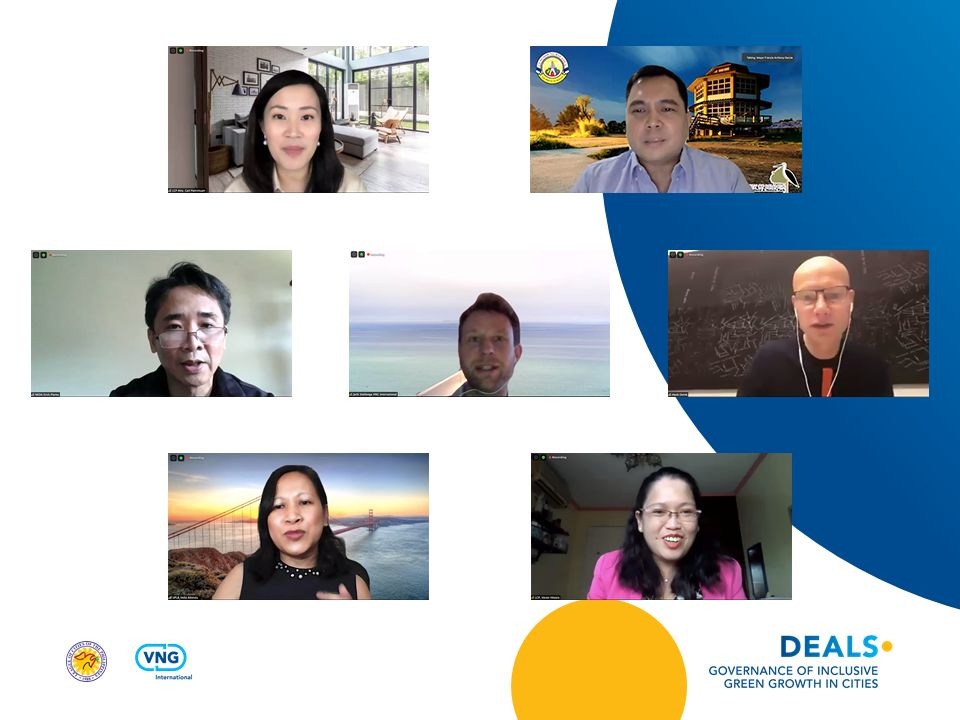
LCP Vice-President for Luzon and Balanga City Mayor Francis Garcia opened the session and highlighted the benefits of collaboration in increasing the capacities of LGUs to implement the PAPs in the masterplan. Assistant Secretary Roderick Planta of the NEDA’s Investment Programming Group corroborated this view in his opening remarks. He shared that inclusiveness and stakeholder engagements are part and parcel of the master planning process. Both Mayor Garcia and ASec. Planta also emphasized the need to create synergies to accomplish the goals of the MBSDMP.
The League also invited experts to elevate the discourse on cooperation and the planning process in the Manila Bay. Professor Rex Cruz, Deputy Team Leader of the local consulting firm behind the MBSDMP, highlighted the important roles of LGUs in implementing the goals of the master plan, as these are very much entwined with the aspirations of the LGUs. He also explained how the master plan’s goals could be incorporated in the land use plans of cities, municipalities, and provinces surrounding Manila Bay.
“The Manila Bay Development Master Plan is consistent with the aspirations of local government units as we pursue, for instance, the improvement of the water quality in the bay,” Cruz said. “That requires improvement in the way we manage our wastewater, the way we manage our solid waste. These are all within your priority areas of concern for LGUs.”
Meanwhile, Mr. Henk Ovink, Special Envoy for the International Water Affairs of the Kingdom of Netherlands and Sherpa to the UN High-Level Panel on Water, focused his presentation on water’s unifying characteristic.
“Water has its capacity to connect,” Ovink said. “It helps in the context of building this enabling environment because investing in water, as said, has this trickle-down effect across all SDGs. Investing in water will reduce health risks, increase economic opportunities, combat climate, make us more resilient, ensure food security, provide less inequality, and so forth. Water is connected to all our challenges, but that is also very complex. So, understanding these interdependencies, understanding that complexity helps us understand how we value water better.” Mr. Ovink also encouraged the local officials and employees to continue to scale-up and replicate actions.
“We have to put our science, our policy, but also our investments where our hearts and minds are. We know what to do, but we also know it is not easy,” he said.
On the other hand, LCP expert and UP-Los Baños Associate Professor Vella Atienza talked about cooperation in solid waste management. She emphasized that there is sufficient legal basis for local governments to venture into interlocal cooperative arrangements for development projects. In presenting the data on existing disposal facilities, she said that there is strong evidence of existing collaboration among LGUs.
Prof. Atienza also shared that LGUs in the Manila Bay Region can cluster according to their existing geographical location—such as the CAMANAVA (Caloocan, Malabon, Navotas, Valenzuela) in NCR—or according to the priority measures of the master plan, such as that of Alyansa ng mga Baybaying Bayan ng mga Lalawigan ng Bulacan at Pampanga which focused on solid waste management.
No matter the reason to collaborate, she also encouraged LGUs to work with the private sector, academe, and funding agencies to address challenges in financing and technical requirements of PAPs in the masterplan.
“Through collaboration, LGUs can pool resources, share information, and expertise,” said Atienza. “The private sector has a very important role. They can provide the infrastructure. With this collaborative partnership with other stakeholders, LGUs need some capacity building, so I believe that the academe, the research institutes, can help a lot,” she added.
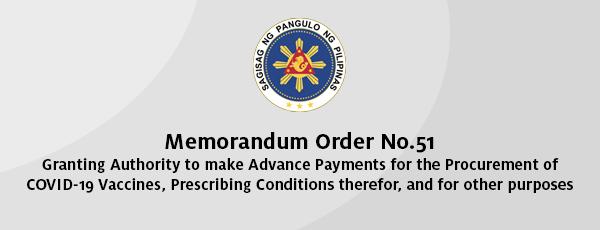 Granting Authority to make Advance Payments for the Procurement of COVID-19 Vaccines
Granting Authority to make Advance Payments for the Procurement of COVID-19 VaccinesFebruary 19, 2021
LOOK: Memorandum Order No. 51 signed by President Duterte granting the national government and local government units (LGUs) authority to make advance payments exceeding the 15\% limit for the procurement of COVID-19 vaccines.
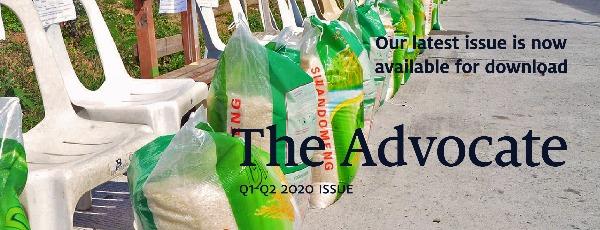 The Advocate
The AdvocateJanuary 15, 2021
The Q1-Q2 2020 issue of our official newsletter features the League's mid-year accomplishments including our response to COVID-19.
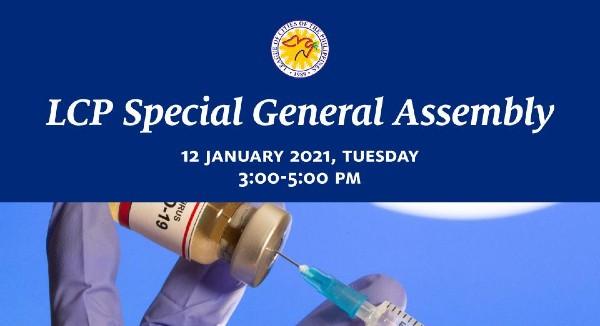 City Mayors to meet Vaccine Czar, FDA Director
City Mayors to meet Vaccine Czar, FDA DirectorJanuary 10, 2021
League of Cities of the Philippines (LCP) National President Bing Leonardia has called for a special online General Assembly of city mayors on January 12 to meet with the Vaccine Czar of COVID National Task Force and the Director General of the Food and Drug Administration (FDA) with the availment of COVID-19 Vaccines on top of the agenda.
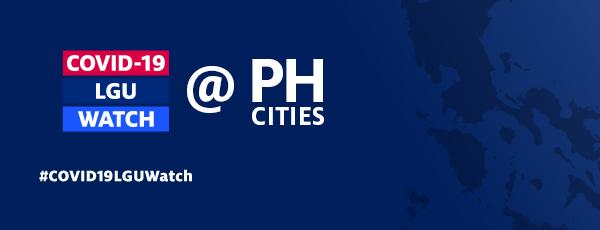 Philippine Cities Local Issuance on COVID-19
Philippine Cities Local Issuance on COVID-19March 18, 2020
Philippine Cities Local Issuance on COVID-19
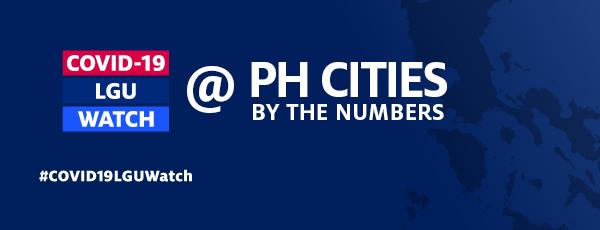 COVID-19 at PH Cities
COVID-19 at PH CitiesMarch 18, 2020
COVID-19 Cases at Philippine Cities (Source: DOH, 15 November 2020).
September 12, 2019
The 2019 Climate Action Summit this 23rd of September will showcase national and local efforts across the globe in responding to the current global climate emergency.
 One Planet City Challenge 2019 - 2020
One Planet City Challenge 2019 - 2020March 19, 2019
On behalf of the Climate Change and Energy Unit of WWF-Philippines, I wish to invite all cities to join the One Planet City Challenge (OPCC) 2019-2020.
March 18, 2019
In support of the World Wide Fund for Nature (WWF) - Philippines’ upcoming Earth Hour celebration on 30 March 2019, I invite all city governments to:
March 3, 2019
The U.S. State Department, International City/County Management Association (ICMA), and ICLEI - Local Governments for Sustainability have opened the applications for the Young Southeast Asian Leaders Initiative (YSEALI) Sustainable Development and the Environment Professional Fellows Program (PFP) for Fall 2019.
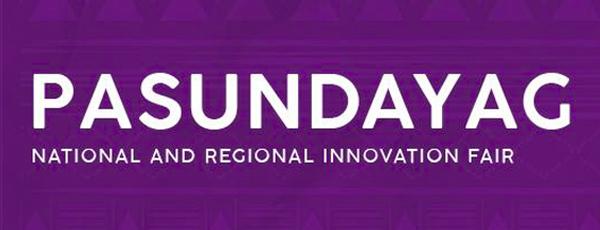 PASUNDAYAG: Central and Southern Luzon Regional Innovation Fair
PASUNDAYAG: Central and Southern Luzon Regional Innovation FairJanuary 29, 2019
In 2018, a number of promising innovation DRRM approaches and models were developed by groups ans organization from academe, civil society, and private sector. To share their models and stories, we invite you to PASUNDAYAG: Central and Southern Luzon Regional Innovation Fair on February 12, 2018 at Skydome, SM North Edsa, Quezon City.
January 29, 2019
Local Government is often considered the tier of government 'closest to the people' and is involved in many activities that affect the everyday lives of the community.
 SCURP: ABC in URP
SCURP: ABC in URPJanuary 29, 2019
We are pleased to inform you that the TESD will conduct its "16th Special Course on Urban and Regional Planning:A Basic Course in Urban and Regional Planning (SCURP: ABC in URP)" on 11-15 March 2019 at the Carino Hall, 3/F SURP Bldg., E. Jacinto St., UP Diliman, Quezon City 1101.
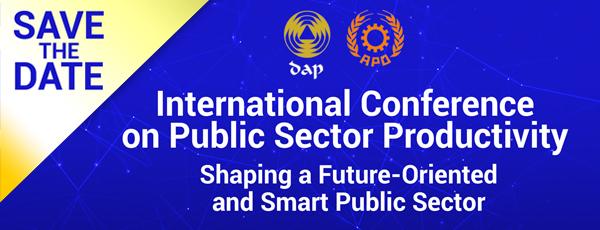 APO International Conference on Public Sector Productivity
APO International Conference on Public Sector ProductivityOctober 5, 2018
The Development Academy of the Philippines (DAP), as the implementing arm of the Asian Productivity Organization's (APO) Center of Excellence on Public Sector Productivity, is pleased to host for the second year the APO International Conference on Public Sector Productivity on November 22 to 23, 2018 at the DAP Conference Center in Tagaytay City, Philippines.
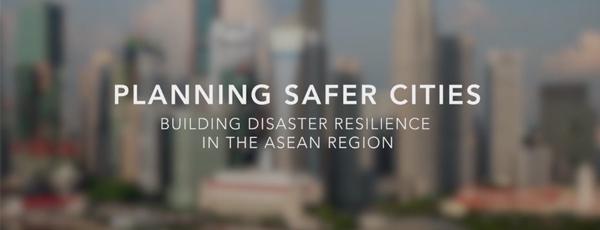 Self-learning training course on Disaster Risk Management for urban planning practitioners
Self-learning training course on Disaster Risk Management for urban planning practitionersOctober 5, 2018
Ensuring safe and resilient urban growth in the ASEAN region is a huge challenge. The region suffers significantly from the impacts of disasters, and this is set to intensify due to climate change.
August 25, 2018
The 7th WaterLinks Forum will be held from 25-27 September 2018 at the Unilab Bayanihan Center, Metro Manila. The Forum’s theme is: "Solving Asia’s Urban Water Crisis: The WaterFood-Energy-Climate Change Nexus".
August 25, 2018
This program will share with the internal auditors the principles, practices and techniques of conducting a risk-based internal audit as applied to local government units (LGUs).
August 17, 2018
The League of Cities of the Philippines would like to congratulate the following cities for winning in the 6th Regional Competitiveness Summit
August 16, 2018
The Ministry of Health (MOH) / King Saud Medical Complex (KSMC), Riyadh, KSA is in urgent need of Female Specialist Nurses and Midwives
May 3, 2018
The Boy Scouts of the Philippines (BSP), created under Commonwealth Act No. 111 as amended by Presidential Decree No. 460 and Republic Act No. 7278, is an organization that recognizes the vital role of the Filipino youth in nation-building.
 Earth Hour 2018 Switch-Off Event
Earth Hour 2018 Switch-Off EventMarch 9, 2018
Uniting millions around the world for climate action, Earth Hour is a testament to our collective power to make real and significant change. It is most successful global campaign of World Wide Fund for Nature (WWF). Earth Hour 2017 was participated by 187 countries and inspired more than 18 million Filipinos to switch off their lights for the planet.
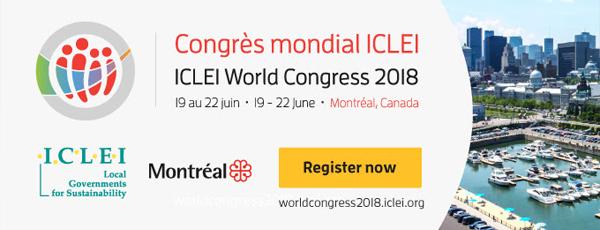 Guangzhou Award for Urban Innovation and WRI Ross Prize for Cities
Guangzhou Award for Urban Innovation and WRI Ross Prize for CitiesFebruary 23, 2018
Call for Submissions for the Guangzhou Award for Urban Innovation (Guangzhou Award) and WRI Ross Prize for Cities
January 29, 2018
The UP National Center for Transportation Studies (U.P. NCTS) is cordially inviting participants from the government and private sectors involved in transportation and related functions to join their training programs for the Year 2018.
January 12, 2018
The U.P. National Center for Transportation Studies (U.P. NCTS) is pleased to announce that applications to the 20th offering of the Center’s Traffic Administration Course are now being accepted.
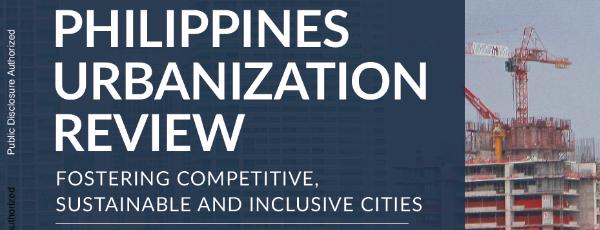 World Bank's Philippine Urbanization Review Now Available for Download
World Bank's Philippine Urbanization Review Now Available for DownloadSeptember 26, 2017
The League of Cities of the Philippines (LCP) participated in the launching of the World Bank’s Philippine Urbanization Review held at the EDSA Shangri-la Hotel.
 Confucius Institute Day and Mid-Autumn Festival celebration
Confucius Institute Day and Mid-Autumn Festival celebrationSeptember 25, 2017
The Confucius Institute of the University of the Philippines Diliman invites you to take part in experiencing Chinese arts, culture, and heritage in the coming Confucius Institute Day and Mid-Autumn Festival celebration to be held in UP Diliman, UP Town Center, and Angeles City from 28 September to 5 October 2017.
August 22, 2017
The U.P. National Center for Transportation Studies (U.P. NCTS), in cooperation with Clear Air Asia for Asian Cities, is pleased to announce that applications to the 2nd offering of the Emission Inventory for Smaller Cities are now being accepted.
 BI Bares New Travel Rules for LGU Execs, Employees
BI Bares New Travel Rules for LGU Execs, EmployeesAugust 3, 2017
Officials and employees of the Local Government Units (LGU) planning to tour or vacation abroad no longer need to present an authority to travel from their department heads to Immigration Officers at the airports.
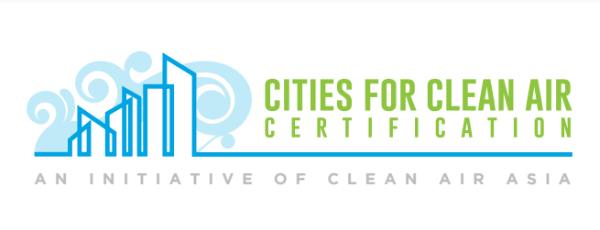 Commit to addressing mobility and health with City for Clean Air Certification
Commit to addressing mobility and health with City for Clean Air CertificationJuly 21, 2017
With rapid urbanization, cities are encouraged to make informed development decisions that will lead to healthy air for their citizens. To date, outdoor air pollution is responsible for 1 in 8 of total global deaths, causing more than 3 million premature deaths worldwide every year.
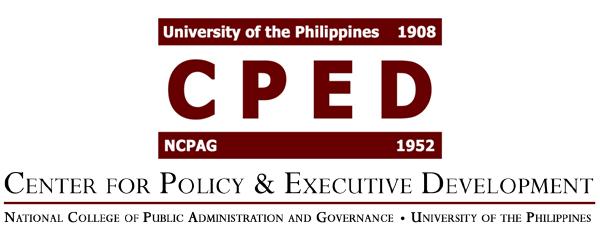 Training Program on Project Development and Management (PDM)
Training Program on Project Development and Management (PDM)June 21, 2017
The Center for Policy and Executive Development (CPED) of the National College of Public Administration and Governance (NCPAG), University of the Philippines (UP) would like to invite you to our Training Program on Project Development and Management (PDM)on 26-30 June 2017.
June 21, 2017
The UP National Center for Transportation Studies (U.P. NCTS) has envisioned to become an internationally recognized center of excellence in the field of transportation studies.
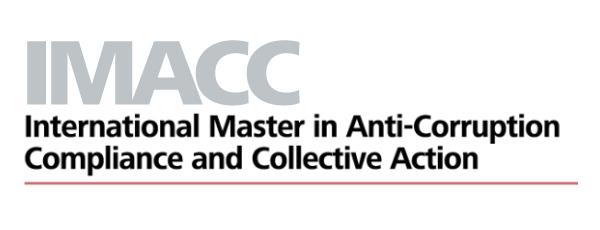 International Master in Anti-Corruption Compliance and Collective Action (IMACC)
International Master in Anti-Corruption Compliance and Collective Action (IMACC)June 15, 2017
IMACC is the first Master's degree programme in the world that is specially designed for anti-corruption compliance and collective action of practitioners involved with business sector.
June 15, 2017
The U.P. National Center for Transportation Studies (UP NCTS) cordially invites you or your representative(s) to attend the 12th offering of the Center's Training Course on Road Safety Audit.
 World Day to Combat Desertification
World Day to Combat DesertificationJune 5, 2017
The Bureau of Soils and Management (BSWM), the United Nations Convention to Combat Disertification (UNCCD) national focal agency, is please to invite you to join us in the celebration of the World Day to Combat Desertification and Land Degradation to be held on June 15, 2017 at the BSWM Convention Hall.
May 12, 2017
List of overseas job vacancies under the Government-to Government hiring program to all Cities through the Office of the City Mayor
 International Food Exhibition (IFEX) Philippines Food Export and Investment Seminars
International Food Exhibition (IFEX) Philippines Food Export and Investment SeminarsMay 10, 2017
All Local Government Units are invited to attend the International Food Exhibition (IFEX) Philippines Food Export and Investment Seminars, FREE-OF-CHARGE.
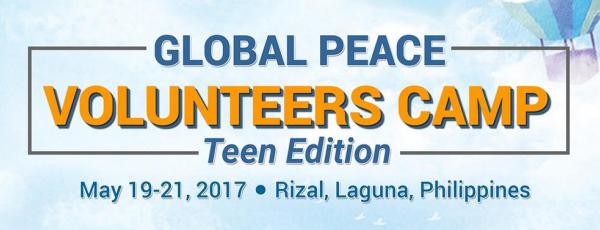 Global Peace Volunteers Camp (Teen Edition)
Global Peace Volunteers Camp (Teen Edition)May 9, 2017
GPV CAMP aims to create a learning environment for upcoming and current university students and youth leaders to develop and practice their skills to explore, discuss, and engage for leadership and personal growth.
 ASEAN Creative Cities Forum and Exhibition
ASEAN Creative Cities Forum and ExhibitionApril 12, 2017
This event will feature initiatives of 10 ASEAN countries in making culture and creativity a driving force for sustainable development and urban regeneration
 Australia Awards Scholarship
Australia Awards ScholarshipApril 11, 2017
Do you want to be a leader in your field and make a difference in the Philippines? Apply now for your opportunity to gain a world class education and become an emerging leader for development with strong links to Australia.
February 28, 2017
The League of Cities of the Philippines (LCP) and International County/City Management Association (ICMA), with the US State Department are opening applications for two Professional Fellows Programs (PFPs) under the Young Southeast Asian Leaders' Initiative (YSEALI)
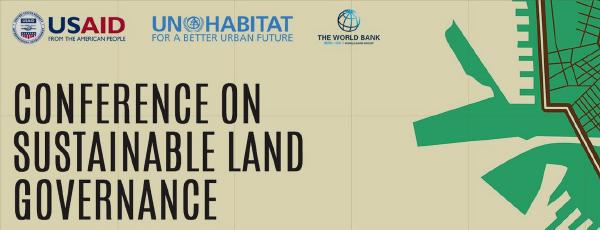 Conference on Sustainable Land Governance
Conference on Sustainable Land GovernanceFebruary 7, 2017
The Conference on Sustainable Land Governance will promote the sharing of good practices and new sustainable approaches to urban land administration and reform.
February 6, 2017
Department of Education, Department of Budget and Management, and Department of the Interior and Local Government Joint Circular No. 1, s.2017
 Rediscover Filipino-Chinese Arts, Culture and heritage
Rediscover Filipino-Chinese Arts, Culture and heritageJanuary 25, 2017
Rediscover Filipino-Chinese Arts, Culture, and Heritage, from January 27 to February 3, 2017
November 18, 2016
64th General Assembly presentations are now available for download at Knowledge Resources of the LCP official website.
November 17, 2016
60th National Executive Board meeting presentations are now available for download at Knowledge Resources of the LCP official website.
October 21, 2016
The League of Cities of the Philippines and International County/City Management Association (ICMA), with the US States Department are calling applications for the Legislative Process and Governance Professional Fellows Program (PFP) for professionals from the Philippines under the Young Southeast Asian Leaders' Initiative.
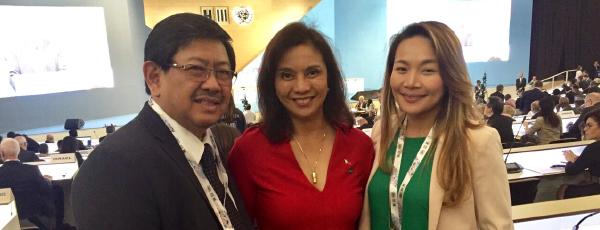 UN Habitat III Opening Session
UN Habitat III Opening SessionOctober 18, 2016
Vice-President Leni Robredo, LCP President Angeles City Mayor Edgardo Pamintuan, and Catbalogan City Mayor Stephany Uy-Tan at the UN Habitat III official opening session.
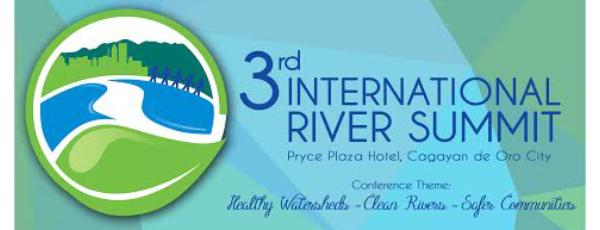 3rd International River Summit
3rd International River SummitOctober 13, 2016
The Cagayan de Oro River Basin Management Council, City Government of Cagayan de Oro with the League of Cities of the Philippines (LCP) and DENR-River Basin Control Office (DENR-RBCO) will host the Third International River Summit on November 24-26, 2016 at the Limketkai Luxe Hotel, Cagayan de Oro City. This year's theme is "HEALTHY WATERSHED - CLEAN RIVERS - SAFER COMMUNITIES".
September 14, 2016
LCP Chairwoman Mayor Ma. Laarni L. Cayetano and LCP Secretary General Mayor Francis Anthony S. Garcia with Department of Heath (DoH) Secretary Dr. Paulyn Jean B. Rosell-Ubial.
September 13, 2016
LCP President Mayor Edgardo D. Pamintuan and LCP Chairwoman Mayor Ma. Laarni L. Cayetano with Department of Budget and Management (DBM) Secretary Benjamin E. Diokno at DBM office for a dialogue.
June 8, 2016
On June 17, 2016, we will be holding our 58th National Executive Board Meeting at Oudh A & B, 9th Floor, Marco Polo Ortigas, Meralco Avenue and Sapphire Road, San Antonio, Pasig City.
April 6, 2016
The National Disaster Risk Reduction and Management Council encourages its member-cities to join the conduct of the 1st Quarter CY 2016 Nationwide Simultaneous Earthquake Drill on April 21, 2016, 830am. There will be a ceremonial event at Haribon Area, Airforce City, Clark Airbase, Pampanga
April 5, 2016
The League of Cities of the Philippines and International County/City Management Association (ICMA), with the US States Department are calling applications for the Environmental Sustainability Professional Fellows Program (PFP) for professionals from the Philippines under the Young Southeast Asian Leaders' Initiative.
March 4, 2016
The League of Cities of the Philippines and International County/City Management Association (ICMA), with the US States Department are calling applications for the Legislative Process and Governance Professional Fellows Program (PFP) for professionals from the Philippines under the Young Southeast Asian Leaders' Initiative.
February 10, 2016
NCTS is inviting participants to join their training programs on traffic administration and management.
November 25, 2015
It has been a month since our LCP-ICMA Young Southeast Asian Leaders Initiatives (YSEALI) Fellows left for United States to learn more about its local governments!
November 6, 2015
CLUP Guidebooks are now available under Knowledge Resources
November 2, 2015
LCP is announcing winners for the 'Our City, Our Space (Public Space for All) Contest.
October 8, 2015
The LCP and International County/ City Management Association (ICMA), with the US States Department are calling applications for the 2016 Professional Fellowship Exchange Program under the Young Southeast Asian Leaders' Initiative.
June 2, 2015
The International City/County Management Association (ICMA), in partnership with the League of Cities of the Philippines, is offering a YSEALI Environmental Sustainability Professional Fellows Program (PFP)
March 2, 2015
The International City/County Management Association (ICMA), in partnership with the League of Cities of Philippines (LCP), is offering a YSEALI Legislative Process and Governance Professional Fellows Program (PFP) for professionals from the Philippines.
October 28, 2014
Call for the submission of applications to the 2013 International Urban Training Center (IUTC) Training Courses:
October 27, 2014
The nomination for the Most Business-Friendly Local Government Unit 2013 is ongoing. We encourage our member-cities to join...
October 27, 2014
Declaring national days of mourning over the passing of secretary jesse m. robredo from 21 august 2012 to the date of his interment
October 27, 2014
The U.P. National Center for Transportation Studies (U.P. NCTS) is pleased to announce that applications to the 10th offering of the Center's Traffic Administration Course are now being accepted.
September 10, 2014
The LCP has been doing a nationwide forum series titled Synergizing Efforts to Combat Tuberculosis in Cities (CCTB) to help cities develop local policies and build public-private alliance to fight local TB.
August 15, 2014
Joint Memorandum Circular No.2014-01: Philippine Commission on Women and Department of the Interior and Local Government
August 10, 2014
Nationwide forum series on Synergizing Efforts to Combat Tuberculosis in Cities
March 28, 2014
Department of the Interior and Local Government Memorandum Circular No.2014-39: 2014 Seal of Good Local Governance: Pagkilala sa Katapatan at Kahusayan ng Pamahalaang Lokal
January 23, 2014
Guidelines Submission on the 2nd Guangzhou Awards 2014
October 27, 2013
The League of Cities of the Philippines through its Secretariat is currently seeking (1) Content Writer and (1) Graphic Artist in the development of infographic materials on Solid Waste Management for Local Government Units.
October 22, 2013
Below are the links of the Needs Assessment Survey: City Website
October 21, 2013
A Cloud Computing Roadshow-Conference will be held on October 24-25, 2013
March 20, 2013
LCP is looking for Junior Program Officer and Finance, Property and Logistic Officer
 Alberto C. Agra
Alberto C. AgraMarch 27, 2010
Alberto C. Agra is back in pubic service. Last November 7, 2016, he was appointed Chairman of the Board of the Philippine Reclamation Authority, the infrastructure development authority focused on reclamation. He was the former Acting Secretary of Justice, Acting Solicitor General and Government Corporate Counsel.
January 1, 2010
The nomination for the Most Business-Friendly Local Government Unit 2013 is ongoing. We encourage our member-cities to join
January 1, 2010
The League of Cities of the Philippines will be conducting the 2013 Orientation Program for Newly-Elected City Mayors
January 1, 2010
1st National Conference on Tourism Governance on November 25-26, 2013
November 16, 2020
The unprecedented landfall of three (3) tropical storms in three weeks or from October 25 to November 11 in the country has greatly affected our cities from Luzon. Based on the available Situational Reports from the National Disaster Risk Reduction Management Council (NDRRMC), a total of 64 cities have been affected by Typhoon Quinta, Rolly, and Ulysses.
October 22, 2020
We invite you to an online consultation with Clean Air Asia on 27 October 2020 (Tuesday), from 2:30 to 6:15 p.m., to deepen the conversation on the importance of establishing and reorganizing transport authorities and executives.
October 16, 2020
City mayors and LGU officers are invited to attend the seventh webinar of the Liveable Cities Labs on Resilience next Wednesday, 21 October 2020, from 3:00 to 5:00 p.m.
October 15, 2020
The Philippine Futures Thinking Society (PhilFutures), in cooperation with its partners, will host the 6th Asia Pacific Futures Network Conference with the theme "Regenerating Asia 2050: Using futures literacy to transform governance, culture, and economy" on 19-21 November 2020 via online platform.
October 13, 2020
The League of Cities of the Philippines, in partnership with VNG International, is pleased to invite you, your City Planning and Development Officer, DRRM Officer, and members of the Sanggunian to a webinar entitled: Promoting Interlocal Cooperation in the Manila Bay Masterplan: Strengthening the Interface of Local Plans with the Masterplan.
October 5, 2020
City mayors and LGU officers are invited to attend the sixth webinar of the Liveable Cities Labs entitled Urban Mobility in the Philippines During and After COVID-19 this Wednesday, 07 October 2020, from 3:00 to 5:00 p.m.
September 30, 2020
Please be advised that the online Orientation on the Measles-Rubella and Oral Polio Supplemental Immunization Activities organized by the Department of Health for city mayors has been rescheduled to 06 October 2020 from 2:00 to 3:15 p.m.
September 14, 2020
City mayors and LGU officers are invited to attend the fifth webinar of the Liveable Cities Labs entitled GovTech: Technology for Government Transactions on 16 September 2020 (Wednesday) from 3:00 to 5:00 p.m.
September 14, 2020
In partnership with the U.S. Commercial Service, the League of Cities of the Philippines will be organizing a virtual roadshow for city mayors and relevant LGU officers entitled U.S. ICT Solutions in Managing COVID-19 next Friday, 25 September 2020, at 1:30 p.m.
September 9, 2020
The League of Cities of the Philippines, in partnership with MSD Philippines, is pleased to invite you, your City Health Officer, or your Local Health Board members to a webinar entitled: BAKUNADO, PROTEKTADO: Restoring Vaccine Confidence in Cities. This will be held on 18 September 2020 at 1:00-2:30PM via Zoom.
August 25, 2020
I am inviting city mayors and LGU officers to support the Liveable Cities Labs co-organized by the LCP by attending the fourth webinar of the online series entitled Data Analytics 101: The Value and Use of Data for Managing LGUs on 02 September 2020 (Wednesday) from 3:00 to 5:00 p.m.
August 20, 2020
As part of our commitment to articulate the urgent concerns of cities on the COVID-19 response, the League continues to engage with national government agencies. Recently, city mayors, led by our LCP President Mayor Bing Leonardia, participated in several dialogues with the National Task Force and the Department of Health.
August 17, 2020
I am inviting city mayors and LGU officers to support the Liveable Cities Labs co-organized by the LCP by attending the third webinar of the online series entitled Digital Transformation in a Post-GCQ World: Building Healthy Cities and Municipalities on 19 August 2020 (Wednesday) from 3:00 to 5:00 p.m.
August 14, 2020
We thank those who attended the online info session on digital transformation and financial inclusion organized by Gracia Telecom and the League of Municipalities of the Philippines (LMP) last 11 August 2020. Attached in this letter are copies of the presentations and videos from the event for your reference.
August 9, 2020
The Film Development Council of the Philippines (FDCP), of which the LCP is a member, is once again hosting its annual Film Industry Conference (FIC) Online 2020 from on 11-15 September 2020.
August 5, 2020
As the number of cases of COVID-19 cases continues to rise in the country, it is imperative for cities to improve access to testing and ensure quicker turnaround time. As relayed by DOH Undersecretary Rosario Vergeire during our testing webinar last May, one of the most cost-effective strategies for expanding access to testing is through the establishment of modular labs. These are container vans that can be converted into testing laboratories and can be set-up even in far-flung and remote LGUs at a lesser cost than the full-blown molecular laboratories.
August 3, 2020
The Bureau of Local Government Supervision of the DILG is requesting information from the League's member cities regarding their existing twinning / sister city partnerships with local governments in China.
July 29, 2020
I would like to invite city mayors, LGU officers, and LGU technical staff to attend the second edition of the Liveable Cities Labs called Digital Transformation in a Post-GCQ World: E-Commerce in the New Normal.
July 29, 2020
The United Cities and Local Governments - Asia Pacific (UCLG-ASPAC) is inviting newlyelected city mayors to take part in the 2020-2021 class of the Asia-Pacific Mayors Academy organized by the UNESCAP and UN-Habitat.
July 29, 2020
The UK Department for International Trade and the British Embassy Manila would like to invite city mayors, LGU executives, and city department officers to enroll in an online course by the Blavatnik School of Government of the University of Oxford called Evidence in Public Policy.
July 28, 2020
The makers behind VISITA, a visitor management platform which helps nature-based tourist destinations adapt to health and safety precautions during the pandemic, would like to invite and partner with local government units to pilot test the said platform.
July 27, 2020
Galing Pook, in partnership with the LCP and COVID-19 Action Network Philippines, would like to invite you to the Forum on Adaptive Innovations at the Local Level on 31 July 2020, Friday, from 1:00 to 2:30 p.m. via Zoom.
July 16, 2020
We are pleased to invite you to an online dialogue on 16 July 2020 at 10:00 AM with Mayor Benjamin Magalong of Baguio City, LCP Focal Mayor on Anti-Criminality and Illegal Drugs. This dialogue aims to provide an avenue for Baguio City to share its best practices and innovative strategies to swiftly identify and isolate contacts of confirmed cases. This will also guide LGUs in conducting responsive contact tracing approach and disseminate information about existing programs on contact tracing.
July 16, 2020
Please be informed that the League's webinar on contact tracing with Baguio City Mayor Benjie Magalong has been rescheduled to 21 July 2020 (Tuesday) at 3:00 p.m.
July 14, 2020
It is with deep regret that our contact tracing webinar with Baguio City Mayor Benjie Magalong scheduled this Thursday has been postponed and rescheduled to a later date.
July 13, 2020
The League has partnered with the Liveable Cities Challenge in re-launching the Liveable Cities Labs which will now be hosted online through webinars every Wednesday starting this July.
July 6, 2020
City mayors and LGU staff are invited to attend a two-day information session focused on cycling and urban mobility organized by the Embassy of Denmark in the Philippines on 28-29 July 2020 via Cisco Webex.
July 1, 2020
We are pleased to invite you to an online dialogue with Secretary Leonor "Liling" Briones of the Department of Education on 10 July 2020, 1:00 PM via Zoom. The dialogue was organized to expound on the roles of cities in the implementation of the Basic Education-Learning Continuity Plan. The format is informal to be able to discuss the anticipated gaps in the opening of classes openly and more clearly.
June 23, 2020
Philippine cities are invited to join the fifth cycle of the Guangzhou International Award for Urban Innovation (Guangzhou Award), a knowledge sharing system for sustainable urban development that aims to recognize innovation in improving social, economic, and environmental sustainability in cities.
June 23, 2020
The Commission on Human Rights (CHR), through their letter to the Union of Local Authorities of the Philippines (ULAP), is urging local governments to ensure that their local policies andactions do not unnecessarily restrict the mobility of elderly citizens.
June 23, 2020
The Department of Budget and Management (DBM) requested the assistance of the League in ensuring that all cities will be able to utilize their respective allocation contained in Local Budget Circular No. 123 dated 12 February 2020
June 18, 2020
To achieve a unified response and to properly articulate our position on the Special Education Fund (SEF), we seek your support and active participation in responding to our survey.
June 8, 2020
We are pleased to invite you to attend the ESCAP and UNEP Information Session on the Localization of SDG 7
June 3, 2020
We are pleased to invite you to attend the World Bank's Philippines Economic Update Online Launch Forum to be held this 09 June 2020 (Tuesday), from 10:00AM to 12:00 PM. With the theme, "Braving the New Normal"
May 22, 2020
UNICEF, in partnership with DOH and WHO and with support from USAID, has developed a training module on COVID-19 Infection Prevention and Control (IPC): Cleaning and Disinfection. The module is developed specifically for sanitation personnel working in public spaces, community health care, quarantine and isolation facilities.
May 22, 2020
We are pleased to invite you to attend a webinar organized by the UNDRR and WHO as part of its Lessons from the COVID-19 pandemic series, Emerging Technologies in Response to COVID-19: Blockchain, ICT and Data for Pandemic Management. This will be held on Tuesday, 26 May 2020, 06:00 PM Incheon time (05:00 Manila time).
May 19, 2020
The ESCAP and UNEP is pleased to invite interested cities to participate in its project on the localization of Sustainable Development Goal (SDG) 7, "Clean energy for sustainable and low carbon cities" The project aims to support Southeast Asian cities to accelerate progress on the implementation of SDG 7 by helping cities to develop local sustainable energy policies and projects and establish effective dialogues between national, sub-national, and local levels of governance.
April 22, 2020
This is to transmit for your information and appropriate action an advisory from DOE Secretary Alfonso Cusi on the deferment of obligations and dues for 30 days for the benefit of electricity consumers.
April 21, 2020
This is to inform Luzon city mayors that the Online Talakayan Series of the DILG-LGA entitled "L!STONG UGNAYAN, COVID-19 AY LABANAN" initially scheduled today, 21 April 2020, has been moved to 24 April 2020 (Friday) at 2:00 to 4:00 p.m.
April 21, 2020
The Office of the Representative in the Philippines of the Food and Agriculture Organization of the United Nations (FAO) has an online survey on responses of cities and municipalities to the Coronavirus Disease 2019 (COVID-19) crisis, particularly in relation to the local food systems.
March 14, 2020
We are in the State of Public Health Emergency and for sure, as chief executives, we are all concerned and focused on how to prevent and fight this COVID-19.
March 4, 2020
Please be informed that the Department of Budget and Management has issued on 17 February 2020 Local Budget Circular (LBC) No. 123 which prescribes the guidelines for the release and utilization of the Local Government Support Fund - Assistance to Cities (LGSF-AC) included in the General Appropriations Act FY 2020.
March 3, 2020
In support of the Earth Hour Celebration of the World Wide Fund for Nature's (WWF-Philippines) on 28 March 2020
February 21, 2020
On 17 January 2020, the League wrote to the Department of Budget and Management to request for the status of the implementation of the 2019 Local Government Support Fund Assistance to Cities (LGSF-AC). As an update and according to the DBM response letter that our office received on 5 February 2020, cities are in various stages of obtaining their 2019 allocation:
February 11, 2020
We are pleased to inform you that our 70th National Executive Board Meeting (EXPANDED) has been rescheduled to 11 March 2020, Wednesday at Sofitel Philippine Plaza Manila, Pasay City.
February 4, 2020
On 29 January 2020, our National President met with the Department of Budget and Management Secretary Wendel E. Avisado to follow-up on the status of the Green, Green, Green Program, and the updated guidelines on the utilization of the 20\% development fund and the Special Education Fund.
January 24, 2020
We are pleased to inform you of the different financing windows currently being offered by the Municipal Development Fund Office (MDFO) of the Department of Finance (DOF). MDFO is mandated to provide financing for priority development projects of Local Government Units (LGUs) at lower interest rates. Since 1998, the MDFO has been extending loan assistance to LGUs, including free technical assistance in the preparatory stages of project implementation.
January 16, 2020
Following the evacuation of residents in the province of Batangas and the damage to property, livestock, and agriculture brought about by the eruption of Taal Volcano, you may coordinate donations and/or humanitarian assistance with the following contact persons from the affected LGUs:
January 14, 2020
To understand the magnitude of the Taal Volcano eruption, we have consolidated the reports from various agencies monitoring the situation. Attached is a copy of a Comprehensive Situational Report obtained from the websites of Philippine Institute of Seismology and Volcanology, Philippine Atmospheric, Geophysial and Astronomical Services Administration, National Disaster Risk Reduction and Management Council, and the Manila International Airport Authority for your reference. We will continually update you of any developments.
November 13, 2019
The MFI Polytechnic Institute, Inc. (formerly Meralco Foundation, Inc.) – Pasig Campus has opened applications for Free Scholarship on its Two-Year Diploma Programs. These programs include, Automation and Mechatronics Technology (30 slots) and Semiconductor Manufacturing Technology (10 slots).
October 29, 2019
The Asian Institute of Management (AIM) and Asia Society for Social Improvement and Sustainable Transformation (ASSIST) are inviting you to attend the International Disaster Conference 2019 on 21 November 2019 at The Peninsula Manila in Makati City.
October 29, 2019
The League is inviting member cities to answer a quick survey developed by Clean Air Asia, the Institute for Global Environmental Strategies (IGES), and ICLEI-Local Governments for Sustainability-East Asia Secretariat (ICLEI-EAS) to help identify the needs of cities in incorporating air quality in local climate change plans.
September 11, 2019
The 2019 Climate Action Summit this 23rd of September will showcase national and local efforts across the globe in responding to the current global climate emergency.
September 4, 2019
The Office of the Presidential Adviser for Entrepreneurship, headed by its President and Chair of the ASEAN Business Advisory Council Philippines, Mr. Joey Concepcion, cordially invites city mayors and technical officers to the event called, “SIGN UP: Angat Lahat sa Digital!” on 23 September 2019 at the World Trade Center in Pasay City.
September 4, 2019
BusinessWorld is inviting city mayors and technical officers to attend a thought leadership forum called, "Industry 4.0 Summit," which will be held at Shangri-La at the Fort on 09 September 2019.
August 27, 2019
The Department of Budget and Management (DBM) recently issued Local Budget Circular (LBC) No. 120 dated 15 August 2019 prescribing the guidelines on the release and utilization of the Local Government Support Fund – Assistance to Cities (LGSF-AC) under FY 2019 General Appropriations Act (GAA), Republic Act (RA) No. 11260.
August 21, 2019
As articulated during his acceptance speech and in keeping with the essence of democracy, National President and Bacolod City Mayor Bing Leonardia's vision for the League of Cities of the Philippines is for it to be an organization for the cities and by the cities.
August 21, 2019
During the 68th National Executive Board meeting, it was unanimously agreed that the LCP will issue a formal appeal to expand the coverage of the Special Education Fund (SEF), allowing local governments to respond more effectively to the distinctive educational needs of their constituents.
August 20, 2019
During the 68th General Assembly, LCP Representative for Region X and Tangub City Mayor Jennifer W. Tan presented the background and salient points of Executive Order (EO) No. 77, which prescribes the rules and regulations and rates of expenses and allowances for official local and foreign travels of government personnel
December 10, 2018
The United Nations Trust Fund in Support of Actions to Eliminate Violence Against Women ('UN Trust Fund') is calling for project proposals under its 22nd grant cycle. The call looks into organizations to fund which can implement projects under the three programmatic areas of its 2015-2020 Strategy:
August 30, 2018
The United Nations Economic and Social Commission for Asia and the Pacific (UN ESCAP) and the United Nations Human Settlements Programme (UN-Habitat) are inviting interested cities to become a pilot city for the project "Integrating the Sustainable Development Goals (SDGs) into local action in support of the implementation of the 2030 Agenda in Asia and the Pacific."
August 14, 2018
We are pleased to forward the invitation of the United Cities and Local Governments Asia-Pacific for their 7th Congress on Innovation-driven Development for Sustainable Cities slated on 12-15 September 2018 in Surabaya, Indonesia.
August 10, 2018
We are pleased to forward a copy of the Status Update on City Public Open Spaces Project sent by the Department of Budget Management
August 10, 2018
Due to our concerted efforts and with the help of Senator Sherwin Gatchalian, we were able to block the passage of Senate Bill 1842 that was calendared for third reading on 6 August 2018.
August 3, 2018
This refers to scheduled 3rd and final reading of Senate Bill 1842 authored by Senator Lacson which seeks to exempt municipalities and cluster of barangays with 250 Million locally-generated income from the population or land area requirements of conversion by amending Section 450 of the Local Government Code of 1991.
July 6, 2018
On 23 July 2016, President Rodrigo Roa Duterte issued Executive Order No. 2 s. 2016 which operationalized the people's right to information through access to government documents within the Executive Branch.
June 5, 2018
The League cordially invites its city mayors to take part in its 30th anniversary celebration at the 66th LCP General Assembly on July 27, 2018, Friday, in Metro Manila.
June 4, 2018
We are pleased to inform you that the Department of Foreign Affairs thru the Department of the Interior and Local Government is inviting Philippine cities to attend the Forum for East Asia-Latin America Cooperation (FEALAC), entitled "II Cultural, Tourism and Sustainable Development Meeting of the Network of Cultural Cities of FEALAC Member Countries" on 21-22 August 2018 in the City of San Salvador de Jujuy, Argentina.
April 26, 2018
The Australia Awards are the international development scholarship program of the Australian Government that aim to develop leadership and build partnerships and enduring linkages between Australia and its partner developing countries including the Philippines
March 2, 2018
Yesterday, 01 March 2018, LCP had a fruitful dialogue with DBM Secretary Ben Diokno with regard to Local Budget Circular No. 116 which sets the guidelines on the utilization of the P2.5 billion pesos assistance to cities for the public spaces program.
April 10, 2017
The League of Cities of the Philippines in partnership with the Local Climate Change Adaptation for Development (LCCAD) is pleased to invite you to participate at the 2017 National Roll Out on the Formulation of the Local Climate Change Action Plan Training-Workshop. This 3-day workshop is in consonance with President Rodrigo R. Duterte's priority programs to address global warming and impacts of climate change.
February 14, 2017
The 13th Community Based Monitoring System (CBMS) - Philippine National Conference will be held on March 1-3, 2017 at Crowne Plaza Manila Galleria
November 3, 2016
The United Nations-Human Settlements Programme (UN-Habitat) has requested the support of the League of Cities of the Philippines to assess the capacities of City Planning and Development Coordinators (CPDCs) or Technical person in charge with Climate Change Adaptation/Disaster Risk Assessment (CCA/DRRM).
September 14, 2016
Sulong Pilipinas: Local Governance Dialogues on September 20-21, 2016
August 9, 2016
This refers to the request of the Department of the Interior and Local Government to disseminate to our members a copy of Commission Resolution No. 2016-001 on the Development of a Clear Policy on Coal-Fired Power Plants in Pursuit of Low Carbon Development Pathway for the Philippines, signed by then President Benigno S. Aquino III.
June 27, 2016
The Sri Lanka has been devastated by severe floods and landslides due to Cyclone Roanu on 15 May 2016, which resulted to 101 deaths and 100 missing persons. Also, there were 230,000 displaced persons and 500 completely damaged houses.
May 13, 2016
The Department of Foreign Affairs and the Department of Interior and Local Government endorse the invitation from the Foreign Affairs of Guangzhou Municipal People's Government for cities and local government units to submit entries to the 2016 Guangzhou International Award for Urban Innovation (Guangzhou Award) and participate in the 3rd International Conference on Urban Innovation to be held in December 2016.
April 15, 2016
A Memorandum Circular No. 93, was issued and signed by Executive Secretary Pacquito N. Ochoa, Jr. dated March 3, 2016 entitled "Directing All Government Agencies and Instrumentalities, including Government-Owned or Controlled Corporations, and Encouraging Local Government Units to Extend Support and Participation to the Kabisig Philippine Government Expo 2016"
April 6, 2016
Guidelines on the granting of the enhanced performance-based bonus (PBB) for local government officials and employees for fiscal year 2017
March 28, 2016
The Financial Times/International Finance Corporation (FT/IFC) Transformational Business Awards is now open to City Governments to apply.
February 16, 2016
Pursuant to Sec. 19 of RA 10601 (AFMech Law), the Secretary of Agriculture shall promulgate national guidelines and procedures for the registration of agriculture and fisheries machinery by the LGUs, including the collection of registration fees in accordance with the Local Government Code.
February 15, 2016
The Japan Council of Local Authorities for International Relations (CLAIR) will be conducting the Local Authorities Specialist Dispatch Project for fiscal year 2016.
February 10, 2016
This refers to the letter from the National Center of Transportation Studies (NCTS) Training Coordinator, Engr. ShielaFlor D. Javier inviting participants to join their training programs.
October 13, 2015
Encourage your constituencies/ local employees to apply in the next round of Legislative and Governance and Environmental Sustainability fellowship for Spring 2016.
October 2, 2015
The United Nations (UN) Habitat, the UN agency for human settlements and urbanization, is encouraging local governments around the world in the annual Urban October, a global platform where individuals, organizations, and governments can discuss ways to address the challenges of urbanization. For 2015, the Urban October starts on October 5 in time for the World Habitat Day and ends on October 31 in time for the World Cities Day.
March 19, 2015
Among World Wide Fund for Nature's (WWF) most successful campaigns is Earth Hour, the largest voluntary movement for the planet. WWF started Earth Hour to engage a mass audience behind the issues facing our planet, and to make a statement that when united we can make a difference.
September 17, 2014
Enjoining the participation of cities in the forum on asean economic integration: the role of local governments
September 1, 2014
Invitation to all city mayors to participate in the local government code review consultation
August 29, 2014
Call for Interested Cities for the project Titled: "C5 for Education: All Roads Lead to SHS Implementation in 2016"
April 2, 2014
Call for Abstracts/Presentations to the 2014 International River Summit
March 5, 2014
Invitation for member cities to participate in the 2014 Seal of Good Local Governance
January 23, 2014
Invitation to LCP member-cities to participate in the 2nd Guangzhou International Award for Urban Innovation 2014
January 10, 2014
Survey on Cities' Response Against Tuberculosis
October 29, 2013
National Climate Change Consciousness Week 2013 (CCC Week)
October 29, 2013
SWAPPCon 2013 - Mainstreaming the Informal Waste Sector
September 30, 2013
Free modular trainings of the foundation for media alternatives (FMA) on electronic violence against women or eVaw
April 24, 2013
30th International AIDS Candlelight Memorial - "In Solidarity"
 FEATURE CITY
FEATURE CITY



Building, Eastwood City, Brgy. Bagumbayan, Quezon City, Philippines 1110






